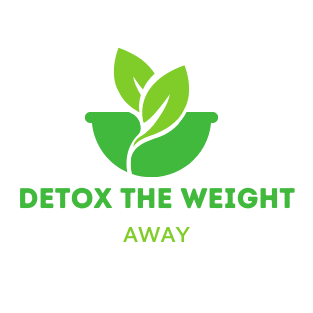Have you ever wondered if it’s safe to take magnesium while breastfeeding? Taking the wrong supplements can pose potential risks for your baby’s health, but the right ones support both your health and that of your little one. You deserve to know the facts; read on to find out if magnesium is a safe supplement while breastfeeding.
Introduction
Breastfeeding mothers are often concerned about the safety of taking supplements or medications while breastfeeding, and magnesium is no exception. While magnesium is an essential mineral that plays a vital role in the mother’s overall health and wellbeing, it is important to understand the potential risks and benefits of taking magnesium supplements while breastfeeding.
Some research suggests that magnesium supplementation may be beneficial for breastfeeding mothers in certain situations, such as if the mother has been diagnosed with magnesium deficiency or if she is experiencing symptoms of postpartum depression or anxiety. However, it is crucial to consult with a healthcare provider before taking any magnesium supplements while breastfeeding, as high doses of magnesium can have adverse effects on both the mother and the baby.
In conclusion, while magnesium can be an essential nutrient for breastfeeding mothers, particularly those with a deficiency or experiencing postpartum symptoms, it is always best to consult with a healthcare provider before taking any supplements or medications while breastfeeding.
Can i take magnesium while breastfeeding
Magnesium is a vital nutrient for breastfeeding women, as it offers numerous benefits for both the mother and the baby. Yes, you can take magnesium supplements while breastfeeding, as long as you follow the recommended dosage and consult with your healthcare provider.
Here are some of the benefits of magnesium for breastfeeding:
| 1. Improves sleep quality and reduces insomnia |
| 2. Reduces stress and anxiety levels |
| 3. Promotes healthy bone development in infants |
| 4. Helps prevent constipation |
| 5. Regulates blood pressure and reduces the risk of preeclampsia |
| 6. Improves immune system function |
| 7. Helps prevent postpartum depression |
However, it is essential to consult your doctor before taking any supplements to ensure they are safe and fit your specific needs. Pro Tip: You can boost your magnesium intake through foods, such as nuts, seeds, whole grains, and leafy greens.
Potential Side Effects of Magnesium During Breastfeeding
Magnesium is safe to consume in small quantities while breastfeeding, but excessive doses can lead to certain side effects that can have an impact on both you and your baby’s health.
Some possible side effects of magnesium during breastfeeding are:
| 1. Diarrhea |
| 2. Vomiting |
| 3. Appetite loss |
| 4. Muscle weakness |
| 5. Lethargy |
Therefore, it’s advisable to consume the recommended daily amount of magnesium, which is approximately 360 mg. Additionally, it’s always better to seek professional advice from your doctor before consuming magnesium or any other supplement while breastfeeding.
Pro Tip – Incorporating magnesium-rich, breastfeeding-friendly foods such as spinach, pumpkin seeds, almonds, and avocados in your diet can positively impact your magnesium intake without any side effects.

Recommended Intake of Magnesium During Breastfeeding
Yes, magnesium intake is crucial during breastfeeding for the optimal growth and development of your baby. The recommended daily intake of magnesium for lactating mothers is 360 mg per day.
Magnesium helps in various functions of the body like regulating heart function, maintaining bone health, controlling blood sugar levels, and supporting the immune system. This mineral is also essential for the proper development of your baby’s nervous and muscular systems.
Magnesium-rich foods like almonds, spinach, avocado, yogurt, black beans, and bananas can be easily included in your diet as a breastfeeding mother to meet the daily magnesium requirements. In case you have difficulty meeting the recommended intake through food, you can also consult your doctor to know the best magnesium supplements to take during breastfeeding.
Pro tip: Drinking mineral water, which is naturally rich in magnesium, can also help you meet your daily magnesium needs while breastfeeding.
Potential Interactions Between Magnesium and Breastfeeding
Magnesium is essential for overall health and wellbeing, and is especially important for breastfeeding mothers who need to maintain a healthy nutrient balance for their baby’s growth and development. While magnesium supplements are safe for most breastfeeding women, it’s important to consult with your doctor before taking any new supplements or making any significant changes to your diet.
| Here are some potential interactions between magnesium and breastfeeding to consider: |
| – Magnesium can be passed on to your baby through breast milk, so it’s important to monitor your magnesium intake and avoid excessive dosages. |
| – Too much magnesium can lead to diarrhea, which can cause dehydration and other health issues for both you and your baby. |
| – If you are taking any medications, especially those for high blood pressure or diabetes, magnesium supplements may interact with these medications and affect their effectiveness. |
Ultimately, it’s important to work with your doctor to determine the right magnesium dosage and to ensure that any supplements you take are safe for both you and your baby.
How to Take Magnesium While Breastfeeding
Yes, you can take magnesium while breastfeeding, and doing so can bring many benefits for both you and your baby. Here are the best ways to supplement with magnesium while breastfeeding:
| Take a magnesium supplement: | Look for a high-quality magnesium supplement containing magnesium glycinate, which is easily absorbed and tolerated by breastfeeding mothers and newborns. Start with a low dosage and gradually increase to the recommended daily dosage. |
| Eat magnesium-rich foods: | Foods high in magnesium include dark leafy greens, nuts and seeds, whole grains, bananas, avocados, and fatty fish. Aim to consume a variety of these foods daily to meet your magnesium needs. |
| Apply magnesium oil: | Magnesium oil can be applied topically to the skin, allowing for easy absorption and bypassing any gastrointestinal issues. Simply rub magnesium oil on your feet, legs, or back before bed. |
Pro tip: Consult with your healthcare provider before starting any new supplement while breastfeeding to ensure it is safe for you and your baby.

In conclusion, it is generally safe to take magnesium supplements while breastfeeding, but it is important to consult with a healthcare provider before doing so to determine the appropriate dosage for you and your baby.
Magnesium is an essential mineral that supports various bodily functions, including muscle and nerve function, blood pressure regulation, and bone health. It can also help alleviate symptoms of postpartum depression and anxiety in some women.
However, taking too much magnesium can lead to adverse effects, such as diarrhea, nausea, and vomiting. It can also cause your breast milk to have a laxative effect on your baby. Therefore, it is crucial to confirm with your doctor the right amount of magnesium to take to avoid any unnecessary risks.
As with any supplement or medication, consult with your doctor before taking magnesium while breastfeeding. They can give you the best guidance based on your specific health needs.
Resources
Can I Take Magnesium While Breastfeeding?
Yes, magnesium supplements are safe to take while breastfeeding. Magnesium is an essential nutrient that plays a crucial role in many bodily functions, including bone health, muscle and nerve function, and heart health. However, it is crucial to consult your doctor before taking any supplements while breastfeeding.
Here are some of the best dietary sources of magnesium:
| – Dark leafy greens like spinach and kale |
| – Nuts and seeds such as almonds, pumpkin seeds, and cashews |
| – Legumes like black beans, kidney beans, and chickpeas |
| – Whole grains like brown rice and quinoa |
| – Avocado |
By getting magnesium through these dietary sources, you can ensure the safety of yourself and your baby while breastfeeding. But, again, consult your doctor before taking any supplement.

